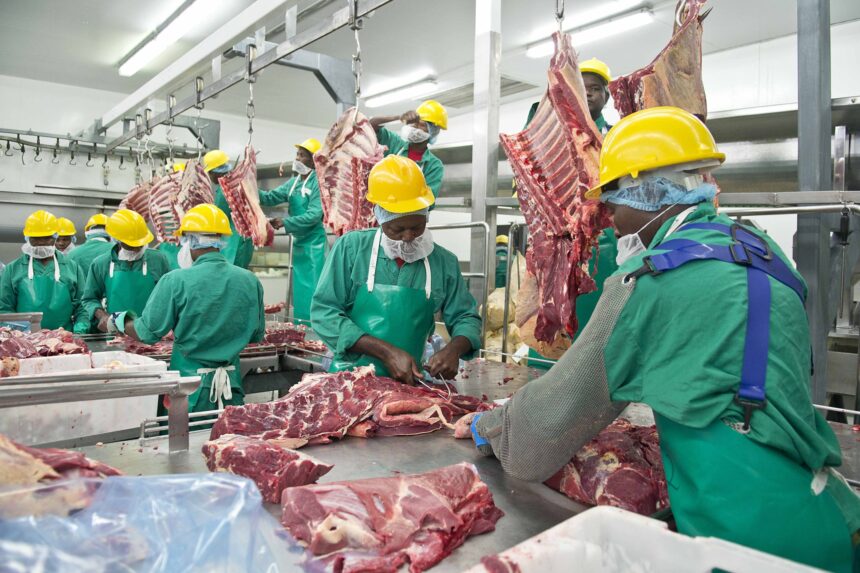The Livestock and Livestock Products’ Board of Namibia has set the wheels in motion by making sure that local farmers and beef-exporting abattoirs comply with the new and highly-stringent European Union deforestation regulations.
The new regulations, which will come into effect on 1 January 2025, will require all countries, trade partners and companies seeking to sell or export their products to the European market to prove that their designated products have not been sourced from land deforested, and have not contributed to deforestation.
The European Union (EU) remains one of Namibia’s important trade partners and leading buyer of Namibian beef and related meat products. Last year, over 80% of the country’s beef exports valued at close to N$500 million was exported to the European market.
With the new regulations, local farmers and exporting abattoirs will be required by the European Union to demonstrate that their meat products have not contributed to deforestation and loss of biodiversity and that all local legislations relevant to the production have been complied with.
Exporters to the European market must also provide information, documents and data, showing that the product is deforestation-free and legal, such as geolocation coordinates of the land where cattle are grazing and being raised, quantity and country of production, amongst others.
Livestock Products Board’s executive for meat standards, Dr Anja Boshoff, told AgriToday that the meat industry has collaborated to ensure readiness of the beef sector to meet the new requirements.
“It is worthy to note that the industry only became aware of such regulation in June 2024, giving us a very short time to prepare. We have thus devised the simplest way to be ready in as short a time as possible. This will give us about one month to test the system before it becomes absolutely critical…”
“Remember, beef entering the EU from 01 January 2025 must comply, which means that beef being packed for the EU market from November in Namibia must already comply. It is my expectation that we will meet the deadline. At this stage, there is no assistance in ensuring compliance. A consultant from the EU visited Namibia to provide some insight into the regulation, as well as to report back to the EU in terms of Namibia’s risk to contribute towards global deforestation,” said Boshoff.
In Namibia’s case, the most affected export products to the European market will be beef, charcoal, hides and skins and related leather products.
“Livestock and Livestock Products Board of Namibia is busy gearing up the industry for the implementation that will take place on 01 January 2025. However, the impact is much earlier, as products entering the European Union from 01 January 2025 must comply. Livestock Products Namibia in collaboration with the exporting abattoirs will inform the industry over time about the correct documentation that must be completed and submitted. We are already in the process of determining the demarcation [geolocation] of all involved producers to the EU market, which is also a requirement of this regulation,” the board further shared on its Facebook page.
“The Livestock and Livestock Products Board will distribute the final forms and arrangements regarding the EU deforestation-free regulation. Geolocations will be provided to the export abattoirs and processors when required by producers.”
The EU will also set up a benchmarking system, that will classify countries or areas into three risk categories according to the risk of producing commodities there that are not deforestation-free.
Meanwhile, agriculture minister Calle Schlettwein recently blasted the latest regulations as prohibitive and stringent. He urged local farmers and exporters to start looking for alternative markets for their beef and charcoal products, as trading with Europe could become problematic in the future.
-ohembapu@nepc.com.na



